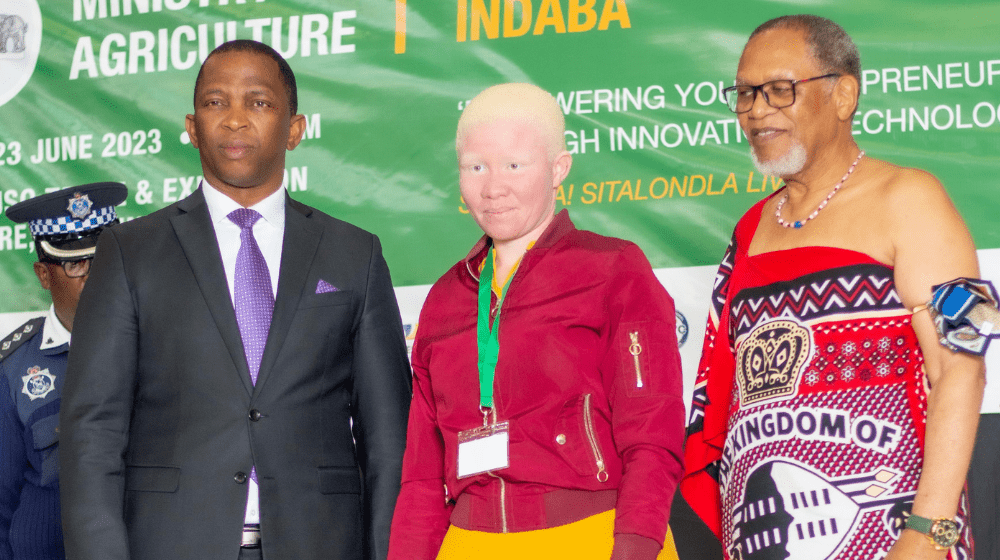“It was a great event. Sharing experiences with other young people, especially those who have already made it in agriculture sector really motivated us young farmers,” stated Queen Dzimba reflecting on her experience from attending the Agri Youth Indaba.
Queen is not your average 23-year-old. She is a farmer, a public speaker, and a poet. She is also a role model to other young people, who want to pursue a career in agriculture, especially those with disabilities. She hails from Dvokolwako, in the Hhohho region of Eswatini. Ms Dzimba is currently involved in vegetables production under the Women Farmer Foundation and wishes to see her agri-business expand and meet the demands of both the local and international vegetable market. But Queen’s journey as a farmer was not easy. She faced many challenges along the way, such as lack of access to land, water, seeds, and markets. Attending the Indaba calmed her fear. She also faced discrimination and stigma because of her disability.
Queen has albinism, a condition that affects the color of her skin, hair, and eyes. Queen did not let these challenges stop her from pursuing her passion for agriculture. She said that she “always wanted to learn new things and improve my skills.”
One of the most memorable events that Queen attended was the first Agriculture Youth Indaba on the 22nd – 23rd June 2023. The Indaba was a two-day event that brought together over 500 young farmers from different backgrounds and regions of Eswatini under the theme, “Empowering youth agri-preneurs through innovation.”
The Indaba was hosted by the Ministry of Agriculture with support from UN Agencies, FAO, UNFPA, UNDP, UNICEF, and WFP and government parastatals such as the National Agriculture Marketing Board (NAMBoard). At the Indaba, Queen had the opportunity to share her story as a young farmer and the challenges she faced. She also learned from other speakers and participants about the opportunities and resources that are available to young farmers in Eswatini.
Ms Dzimba shared that the Indaba “opened my eyes” and “inspired me” to continue working hard and learning from her mistakes. One of the key lessons that Queen learned from the Indaba was that “as a young farmer, you should not be afraid to start small.”
She said that “starting small is not an issue, as long as you are willing to work hard and learn from your mistakes.” She also said that she “wishes that we can have another similar event in the future where we can look back and say this is how we have progressed since the last summit.”
Queen is optimistic about the future of agriculture in Eswatini.
She said that she “hopes that more young people will join the sector and contribute to its growth and development.” She also said that she “wants to be an example for other young people with disabilities who want to participate in agriculture and achieve their dreams.”
Among the participants were young people with disabilities from the Federation of Disabilities Swaziland (FODSWA). These young people had various disabilities, such as visual impairment, auditory impairment, and albinism. The inclusion of young people with disabilities in the Indaba showed that everyone has a place in agriculture, regardless of their abilities.


